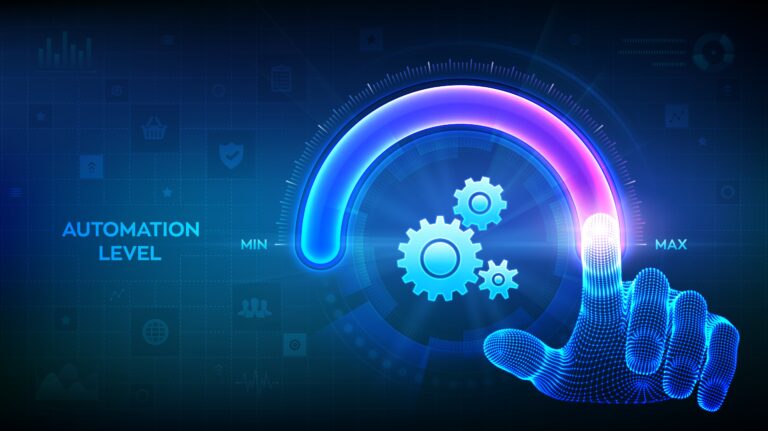Just when you thought you knew the latest in AI, here comes the next wave.
As a leader, your ideal scenario is to be surrounded by a very well-seasoned team of great minds in their

area of expertise. They can understand the task, digest pertinent information, work together, and make great, trusted, decisions in support of the goal, culminating into a well-oiled machine of performance and efficiency. If we could only clone those “best of breed” teammates… Enter Agentic AI.
What is that?
The next frontier of AI includes Agentic AI, so you ask, “what is that?” Agentic AI, or agentic artificial intelligence, refers to AI systems that operate with a sense of autonomy and purpose. Unlike traditional AI, which simply follows predefined instructions or rules, Agentic AI can make decisions and act based on a set of goals or objectives. It can dynamically assess situations, make choices, and adapt its actions over time to fulfill a purpose without requiring constant human intervention. Sounds great, right?
How is it different?
As we learned through the adoption of Big Data, there are incredible advantages of scalability to know the products, suppliers, customers, and transactions at a much deeper and faster level. Think of it as the new scalability advantage within AI.
Agentic AI applications often employ multiple agents that work together or independently to efficiently solve complex problems. These agents can collaborate by performing specialized roles, such as data gathering, analysis, decision-making, or executing actions, and they often process tasks in parallel to improve speed and efficiency. Multi-agent systems are commonly used in simulations and modeling to explore interactions, as well as in scenarios requiring negotiation and coordination like supply chain management or autonomous vehicle systems. Additionally, these agents can learn and adapt from their environment and interactions with each other, refining strategies over time to achieve better outcomes.
Think of agentic AI as a digital assistant on steroids. Instead of just answering your questions or performing simple tasks, it can take initiative, solve complex problems, and adapt its approach based on changing circumstances. It’s like having a tireless, hyper-intelligent intern who not only follows your instructions but also anticipates your needs and comes up with creative solutions you might never have considered.
Agentic AI stands out from traditional AI models due to several distinct characteristics. It possesses autonomous decision-making capabilities, enabling it to independently determine the best course of action to achieve its objectives, even in dynamic and changing environments. This autonomy equips agentic AI to handle complex tasks that require real-time adjustments. Unlike systems that simply execute isolated tasks, agentic AI is driven by overarching goals, continuously aligning its actions to these goals in a way that mirrors how a human might work toward a mission. Additionally, agentic AI can learn and adapt from experience. By utilizing machine learning, it refines its understanding of the world and improves its actions, adjusting strategies based on outcomes to enhance effectiveness. Another key feature is its interactivity and collaboration. Agentic AI can engage with humans and other AI agents, offering the ability to take input, provide feedback, and even negotiate actions to achieve shared objectives.
Potential Applications
While there are MANY potential applications of Agentic AI, here are just a few to provide context:
- Business Operations: Agentic AI could streamline operations, manage resources, and even make strategic decisions autonomously, helping organizations stay adaptive and competitive.
- Personal Assistants: As personal digital agents, these AIs could proactively assist with scheduling, task management, and information retrieval, anticipating user needs based on habits and preferences.
- Healthcare: As a virtual health assistant, Agentic AI can not only assist with diagnosing but also recommending personalized treatments, continuously adapting to patient responses.
- Smart Cities: In urban planning, agentic AI can optimize traffic flows, energy usage, and safety protocols, autonomously adjusting to conditions in real time.
When should I use Agentic AI?
This is the key: Agentic AI is best suited for situations where complex, dynamic, and high-stakes decisions are required, especially when human intervention is limited or impractical. It should be used when the environment is unpredictable, and real-time adjustments are necessary to achieve outcomes efficiently. This makes it valuable for applications like autonomous systems that must continuously adapt. Additionally, agentic AI is ideal for scenarios requiring long-term, goal-driven behavior, such as managing supply chains, optimizing energy grids, or monitoring cybersecurity threats. Furthermore, you can deploy agentic AI for tasks where collaboration is needed, such as negotiating strategies in multi-agent environments or interacting seamlessly with human operators to improve decision-making and performance. However, it is essential to ensure the use of Agentic AI aligns with ethical and safety considerations, as its autonomous nature can raise concerns in high-stakes applications.
Having a partner to aid in the implementation is critical. Expertise in decomposing the decision process, re-engineering processes, knowledge of data, and especially expertise in the creation of an AI ecosystem that will bring you success is absolutely a must. You do not want to try this alone and fail when everyone is waiting for optimal and hyped-up outcomes.
Interested in exploring this concept further?
Please visit our website at mcleanforrester.com or reach out to us at [email protected] Let’s chat about your possibilities to bring greater effectiveness and efficiencies within your operations for market advantage.




